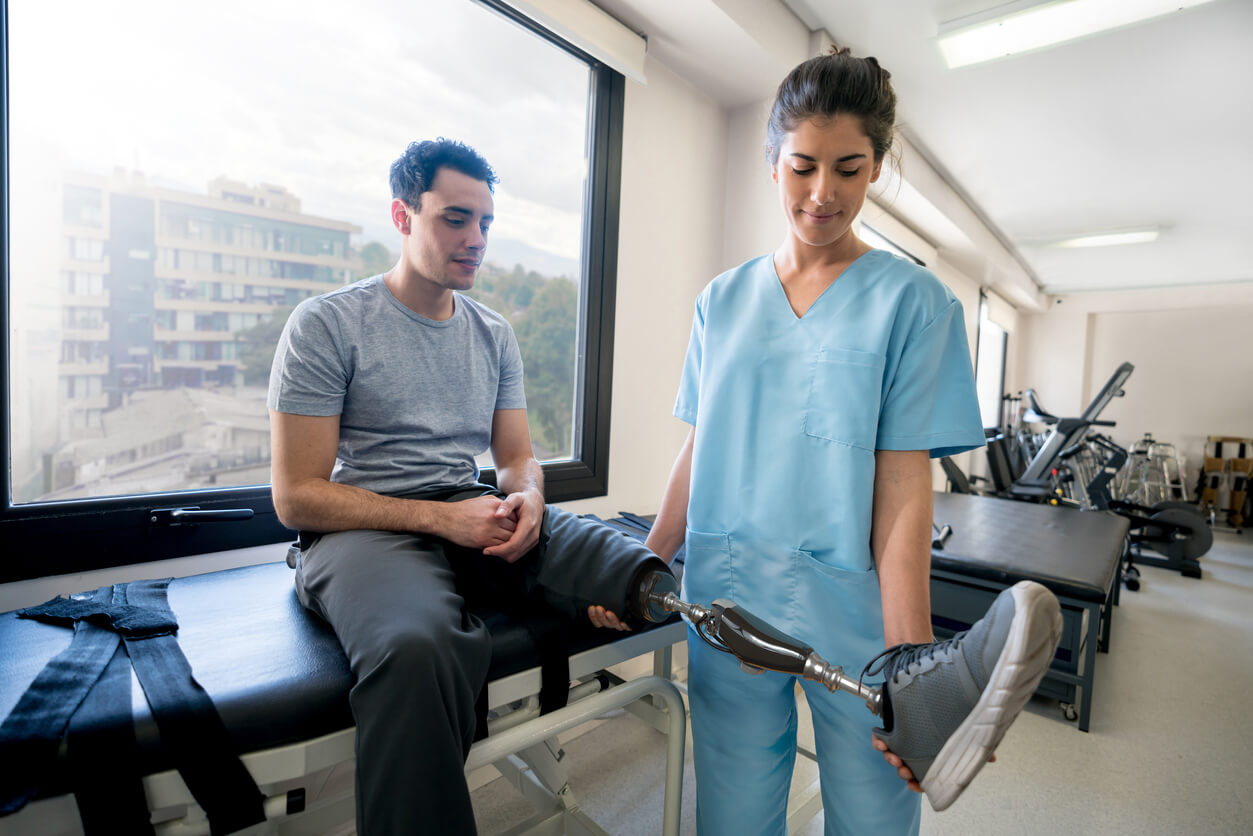There’s no doubt that the amputation of a limb or body part can significantly alter your life. However, sometimes it can also greatly impact your ability to be able to work. In such a case you may be eligible for Social Security Disability (SSD) benefits. It’s important to keep in mind that since different amputations have different limitations, an amputation alone isn’t enough to receive SSD benefits. Rather, specific requirements must be met.
SSD Requirements
The Social Security Administration (SSA), the agency responsible for granting or denying individuals SSD benefits, lists amputations under Listing 1.05 of its impairments. In order to meet the requirements for SSD benefits, a claimant must:
- Have both of their hands amputated; or
- Have one or both of their lower extremities at or above the tarsal region amputated, resulting in stump complications and a medical inability to use a prosthetic device and effectively ambulate. This must have already lasted or be expected to last at least one year.
You May Still Qualify
However, even if you don’t meet either of these requirements, it doesn’t mean that you can’t still be eligible for SSD benefits. The SSA will evaluate your SSD claim based on your specific limitations within a work environment. The SSA will consider what is referred to as your Residual Functional Capacity (RFC) in order to determine if it has been diminished so that you are unable to do your past work or to do other work.
You will have a SSD hearing at which a Vocational Expert may testify as to the jobs that are available (or not available) for someone with your RFC.
Factors for Approval of SSD Benefits for Amputation
There are various factors that the SSA will weigh when considering whether you are able to receive SSD benefits for an amputation. Some of these factors include:
- The body part that has been amputated;
- Your previous employment record/work history; and
- The limitations of your amputation on your abilities.
While you can file for SSD benefits on your own, doing so can prove quite complicated. The smallest error in filing or missing documentation can result in a denial of your claim. A knowledgeable and experienced SSD attorney understands what is needed for your claim, how to file it, questions to ask you, and evidence to properly present. This can save you the time, money, and aggravation of appealing your claim.
The Las Vegas SSD Attorneys at Roeschke Law, LLC Can Help
If you or a loved one is struggling with a disability that prevents you from working, you may not know how to proceed. Fortunately, the attorneys at Roeschke Law, LLC can help. We understand the impact that a disability can have on your physical, emotional, and financial health. That’s why it’s our mission to help you. To learn more, or to schedule a consultation, contact us today!
